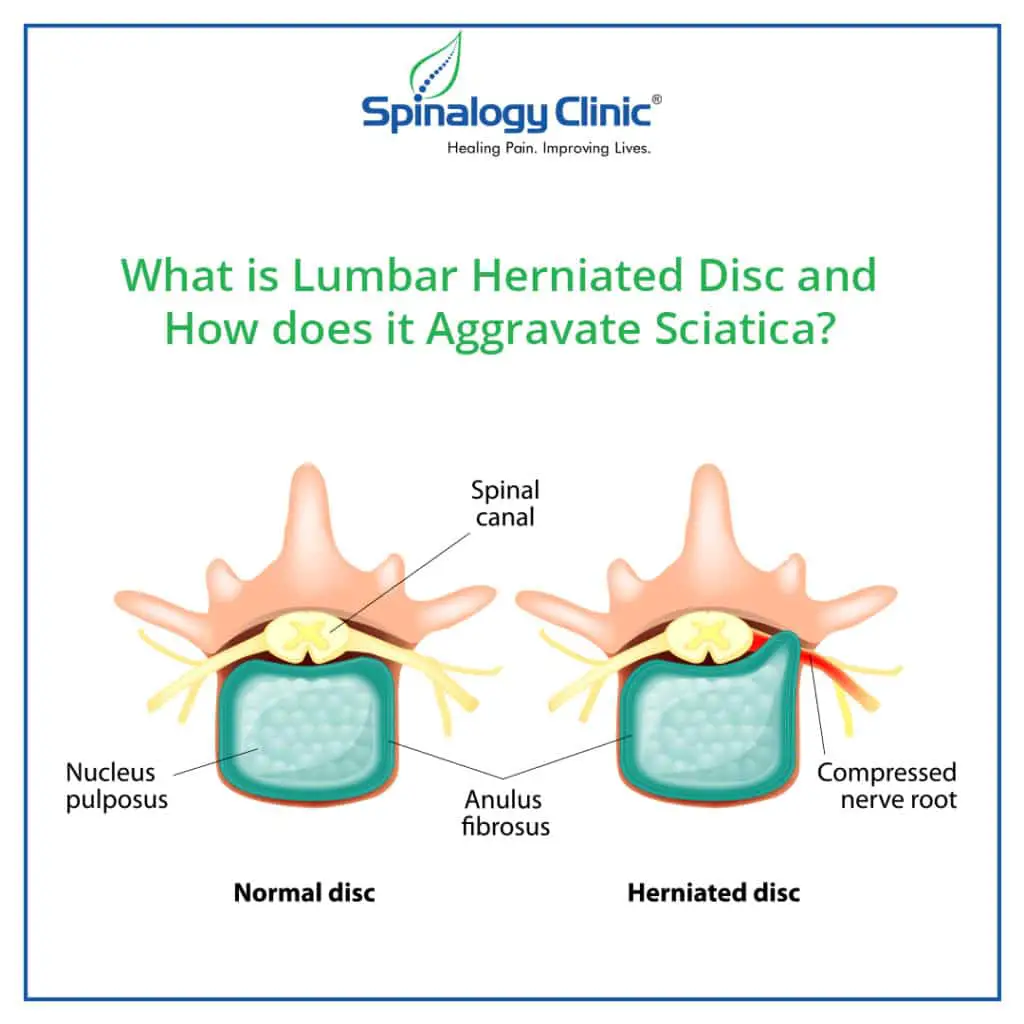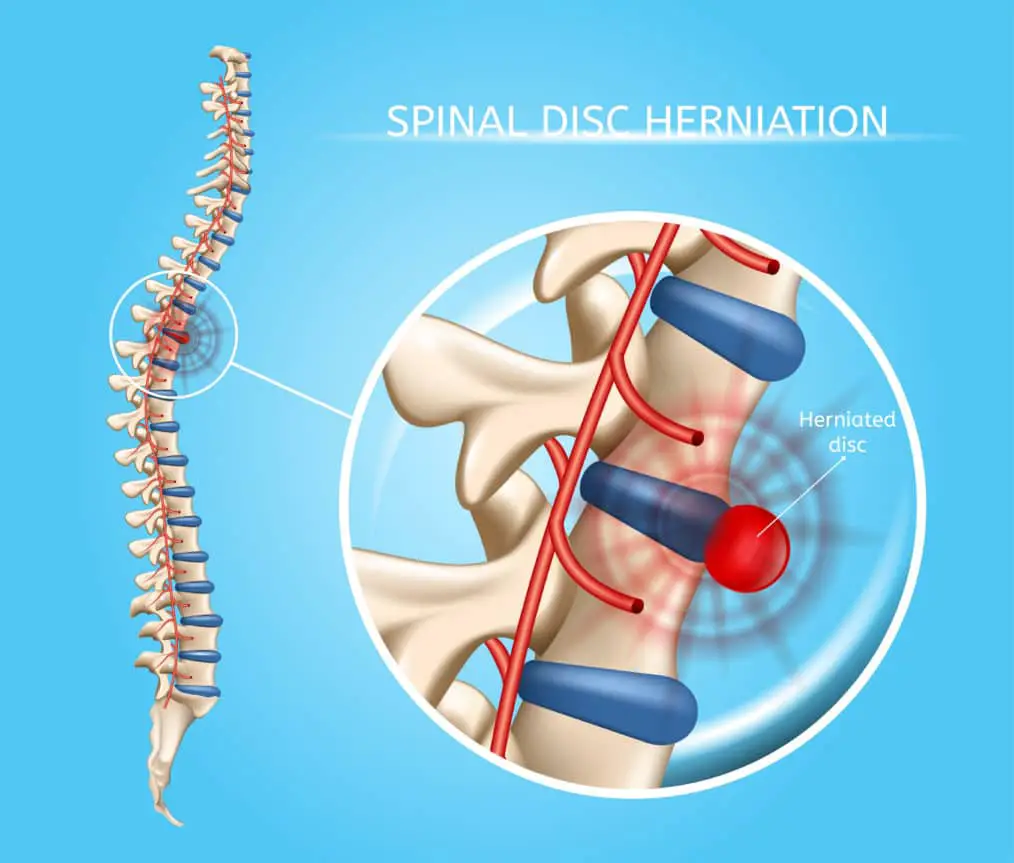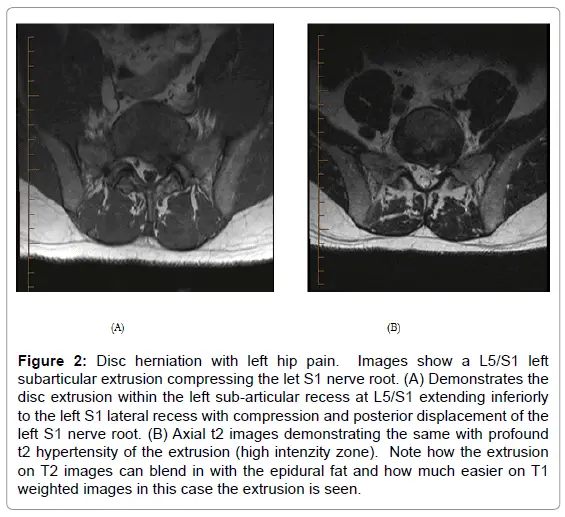How Should I Manage An Active Inguinal Hernia
If youre living with an inguinal hernia and not having it repaired, youll need to take care not to let it get worse. You may want to avoid certain exercises or activities that strain your abdominal muscles. You may want to consider reducing your weight, quitting smoking or changing your diet to improve your bowel function and prevent straining on the toilet. Talk to your healthcare provider about hernia care.
Facts About Inguinal Hernia
Inguinal hernias may occur on one or both sides of the body and aremuch more common in men than women. An inguinal hernia can appear atany age. Infants may be born with one that doesnt show up until theybecome adults. About five out of every 100 children are born with thecondition.
An inguinal hernia can also develop over time if you increase pressureon the walls of your abdominal muscles through activities likestraining to go to the bathroom, coughing over a long period, beingoverweight, or lifting heavy weights. If you have a family history ofinguinal hernia, you may be at a higher risk for one. Infants bornbefore their due date are also at higher risk.
Can A Hernia Cause Pain In The Groin
A hernia can cause pain in the groin that can extend to the hip joint. A person with an inguinal hernia needs surgery. The surgeon will either push the protruding area of the bowel back inside the abdomen or remove it and close the gap in the abdominal wall.
What kind of pain is caused by inguinal hernias?
Women with inguinal hernias more commonly present with groin pain than with a bulge. These are sometimes referred to as occult or hidden hernias. The pain is felt at or above the level of the groin. Half of the patients will have pain that may radiate up to the hip area, around to the lower back,
You May Like: What Can X Rays Show For Back Pain
Is It A Lumbar Triangle Hernia
A lumbar triangle hernia is a rare medical condition thatoccurs when tissue develops an injury in the flank, and this can also lead toback pain.
A Lumbar hernia can be identified as a lump on the back that can cause pain in coughing. The lump may still be evident on lying down and it may get irritated during a workout.
Lumbar triangle hernia generally includes fat covering the bowel but can seldom contain bowel.
Can A Femoral Hernia Cause Hip Pain

Larger hernias may become visible as a lump or bulge in the area of your upper thigh. That bulge may cause discomfort or pain when you try to stand up, lift a heavy object, or strain in another way. Because femoral hernias are in many cases located in close proximity to the hip bone, they may cause pain in the hip.
You May Like: Does Collagen Help Back Pain
Dr Vikki Petersen Dc Ccn
Founder of Root Cause Medical Clinic Certified Functional Medicine Practitioner
Dr Vikki Petersen is a public speaker, author of two books, several eBooks and creates cutting edge content for her YouTube community. Dr Vikki is committed to bringing Root Cause Medicine and its unique approach to restoring health naturally to the world.
Difference Between Spinal Hernia And Abdominal Hernia
The term spinal hernia is also known as a herniated disc, prolapseddisc, ruptured disc, and slipped disc.
An individual may experience this condition when the gel-likesubstance inside the discs that pad between every single one of the bones in thevertebrae starts to press out the surface through a debilitated region of the discsexternal band.
Since the spinal canal is thin,a spinal nerve is often strained by the slipped disc leading to pain in theback. At times, an individual may experience numbness and tingling.
A herniated disc is similar on a basic level to an abdominalhernia. In both conditions, something inside is attempting to get out, leadingto pain. In any case, the area of these conditions varies, thus does the matterthat is attempting to move beyond its standard limits.
Whereas an abdominal hernia is a lump or swelling inthe abdominal cavity that pushes through a weak spot in the abdominal wall andforms a lump or bulge.
However, in a herniated disc condition, that jelly-likesubstance in the center of the disc presses out through a weak spot or rupture inthe extreme external edge of the disc. It can develop in any section of any discof the spine.
Generally, it is found in the lower back and if it doesnt putpressure on a nerve then an individual may encounter gentle lower back pain.
Then an individual may need to prepare for some pain and irritation that transmit from the lower back to the hips, legs, and calves. This transmitting pain is called radiculopathy.
You May Like: How To Know If Your Mattress Is Causing Back Pain
How Is A Ventral Hernia Repaired
Ventral hernias do not go away or get better on their own and require surgery to repair. In fact, without treatment, ventral hernias can get larger and worsen with time. Untreated hernias can become difficult to repair and can lead to serious complications, such as strangulation of a portion of the intestine.
The goal of ventral hernia surgery is to repair the hole/defect in the abdominal wall so that the intestine and other abdominal tissue cannot bulge through the wall again. The surgery often restores the tone and shape of the abdominal wall by repairing the hole and bringing the muscles back to their normal position.
There are three main types of hernia repair surgeries: open, laparoscopic and robotic:
Your surgeon will consider several factors to help determine the best surgical hernia repair method for you, including:
What Does Upper Thigh Pain Mean
Because of a large number of muscles in the upper thigh, pain in this area is often due to a muscle injury. Some common muscle injuries in this area include: Muscle sprains and strains. Sprains and strains can affect any of the many muscles, ligaments, and tendons in the thigh. A sprain is a torn or stretched ligament.
You May Like: How To Ease Upper Back Pain
Lumbar Hernia: An Unusual Cause Of Back Pain
Urgent message: Back pain is a common complaint in the urgent care setting. Common causes of musculoskeletal back pain include overuse and work-related injury. Other causes can include disc herniation, metastasis, osteoporosis, arthritis, spinal stenosis, and nephrolithiasis.
Crystal N. Bharat MD, Ronald Dvorkin, MD, and Glenn G. Gray MD
Case Presentation A 65-year-old female complained of 1 day of low back pain radiating to her left flank, which was aggravated with movement. Symptoms began while at work. Patient denied nausea, vomiting, diarrhea, fever, urinary frequency, urinary urgency, dysuria and hematuria, bowel or bladder dysfunction, or lower-extremity or gluteal paresthesias. On her physical exam, paravertebral muscle spasm was appreciated with mild midline tenderness and no mass.
Neurological sensation was intact. Motor strength was 5/5 and reflexes 2+ in the lower extremities bilaterally. Lumbar radiographs were negative, without acute findings. Patient was diagnosed with lumbar strain and treated with cyclobenzaprine and naproxen sodium .
Discharge Instructions Patient was advised to follow up with general surgery.
Red flags for serious causes of back pain include fever, weight loss, numbness, history of malignancy, nighttime pain, and urinary retention or incontinence. Chronic undifferentiated low back pain may also deserve additional work-up.
Will It Get Worse
The short answer: Yes. A hernia will not go away by itself, and almost always gets worse the longer its ignored. The tear gets bigger, and the bigger the tear, the bigger the surgery needed to fix it. What started as pressure or discomfort can turn into pain. The pain may not just be in the area of the hernia it can radiate to your hip, back, leg even to the genitals. As your hernia gets worse, many aspects of your life will get worse right along with it. Even if it isnt painful , the sensation and pressure may cause you to avoid certain activities. Your job, your family, your weekends, and even your sex life can all suffer.
Read Also: Are Epidural Injections For Back Pain Safe
What Is A Ventral Hernia
A hernia occurs when there is a hole in the muscles of the abdominal wall, allowing a loop of intestine or abdominal tissue to push through the muscle layer. A ventral hernia is a hernia that occurs at any location along the midline of the abdomen wall. There are three types of ventral hernia:
- Epigastric hernia: Occurs anywhere from just below the breastbone to the navel . This type of hernia is seen in both men and women.
- Umbilical hernia: Occurs in the area of the belly button.
- Incisional hernia. Develops at the site of a previous surgery. Up to one-third of patients who have had an abdominal surgery will develop an incisional hernia at the site of their scar. This type of hernia can occur anytime from months to years after an abdominal surgery.
What Symptoms May Indicate You Have A Hernia

Hernias can be painful and, if left untreated, can lead to serious complications. If you are experiencing any of the hernia signs and symptoms below, our specialists at the Hernia Center of Northeast Georgia Medical Center can determine treatment options specific to your case.
Signs and symptoms of a hernia will vary based on the type of hernia you have. There are four main types of hernias:
- Inguinal hernia
You May Like: Will Massage Help Lower Back Pain
Questions To Ask Your Doctor
If you are experiencing hernia mesh pain after surgery, its important to talk to your provider. Here are some questions that will help you and your doctor discuss your pain and develop a treatment plan.
- Where is the pain located?
- On a scale of 0 to 10, where 0 is no pain and 10 is severe pain, where does your pain fall?
- What were you doing when the pain started?
- Does the pain come and go?
- Does the pain interfere with your sleep?
- Does coughing make the pain worse?
- Are there activities that make the pain worse?
- Does taking medicine, changing positions, resting or eating different foods lessen the pain?
- How does the pain feel?
- Does doing normal activities cause you pain even after youve taken medicine?
Why Choose The Surgery Group
We remain committed to providing our patients with innovative, safe alternatives to open surgery. However, there are times when open surgery is warranted, and minimally invasive surgery is not an option. In cases such as these, our board-certified surgeons are prepared to perform conventional surgery and provide each patient with the compassionate, high-quality, personalized care they deserve.
OUR SURGEONS ARE NOT DIRECTLY OR INDIRECTLY ASSOCIATED WITH ANY HOSPITAL. As such, we can recommend the best place for your Surgery to be done. Our only interest is resolution of your health problem in the safest and easiest way. Any surgeon who works for a hospital is bound by the administrative policies dictated by that hospital which can affect your care. These surgeons may be encouraged to use techniques or consultants or diagnostic tests which benefit the hospital system and are not in the best interests of the patient.
Our surgeons are continually maintaining their skills and expertise. This is accomplished by keeping up with the latest surgical techniques and technological advancements in our field. Whether we are performing an open surgery, a minimally invasive procedure or a robot-assisted surgery, our expert surgeons can perform complex and delicate procedures with unmatched precision.
You May Like: What Would Cause Back Pain
There Is Some Belief That An Inguinal Hernia Causes Lower Back Pain A Myth Or Scientifically Proven
Surprisingly, 1 out of 10 people in the world, have an abdominal hernia in their life. In this case, the problem regarding an inguinal hernia causes lower back pain is still arising.
Correspondingly, people who complain about their lower back pain with inguinal hernia disease, sometimes asked if their hernia is linked with their back pain.
As we know, an abdominal hernia is a condition when the organs inside the body presses and penetrate out through the crack of the weakened abdominal muscle.
According to Dr. Bothwell in Abingtonhealth.org, men are more common to develop a hernia. And yes, one of the most well-known types of hernia is an inguinal hernia.
Simply based on their anatomy, its more common for men to develop hernias.As the testicles develop in the abdomen, it creates a small area of weakness that 20 percent of men dont feel, Dr. Bothwell said.
Are Hip Pain And Back Pain Related
Both hip pain and back problems can cause lower back pain, groin discomfort, thigh pain, buttock pain, and sometimes even knee pain. These people are known as the hip-spine Syndrome. Because pain can vary in intensity, it is sometimes harder to pinpoint the cause.
Your doctor can help diagnose the root cause of both your back and hip pain. Advanced imaging techniques may be used by doctors to aid in diagnosis after a complete physical examination and review of your medical records.
A diagnosis may reveal that hip and back pain might be linked. It could be a problem in your spine, hips, or both. This article will discuss some common conditions in the spine that can lead to back pain or hip pain.
Back and Hip Pain
Pinched Nerve and Herniated Disc Can Cause Back and Hip Pain. As the discs between spinal vertebrae get older, the outer layer can become damaged and allow the material to leak into the spinal canal.
This condition is known as a herniated or bulging disc. A herniated spine can lead to pain by putting pressure on the nerves. Because nerves in the spinal cord control communication between the brain, the brain, and other areas of our bodies, pain can also be felt elsewhere.
Spinal Stenosis, Hip Pain
Spinal stenosis, which is similar to a herniated or bulging disc, is caused by pressure on the nerves. Spinal stenosis occurs when the spinal canal narrows and not a herniated or bulging disc. Cysts and bulging discs are common causes of narrowing of the canal.
Don’t Miss: Does Walking Backwards Help Back Pain
Can A Hernia Cause Back Pain
Can A Hernia Cause Back Pain? The short answer is yes, hernias can cause back pain. Before we dive into anything deeper, lets talk briefly about what exactly a hernia is. A hernia occurs when an organ or piece of tissue pushes out of the muscle wall, resulting in pain and potential blood flow problems.
Hernias come in many different forms, and they can occur in many areas of the body. Here are some of the more common types of hernias:
- Abdominal hernia. They occur throughout the abdomen.
- Inguinal hernia these occur in several areas around the groin.
Both types can reason pain in the middle and/or lower back. The hardest part is differentiating between a hernia and other conditions that may reason pain.
Most Common Symptoms Of Hernia
Symptomatic hernias may produce a wide array of non-specific discomforts related to the hernia sac and the pressure by the sac on adjacent tissues. These discomforts are commonly worse at the end of a day, especially if there has been physical exertion during the day. These symptoms tend to be relieved at night when patients are lying down and the hernia reduces.
Also Check: What Could Be Causing My Back Pain
Symptoms Of A Spinal Hernia
The position of the affected disc, as well as the size of the herniation, will affect the symptoms that you experience, according to the AANS. The pain doesnt always stay localized to the site of the slipped disc.
The pain sometimes extends beyond your neck or lower back, too. It might radiate down your arms or down your legs, typically in the areas to which the nerve travels.
The pain might get worse after you stand up or sit down or move in a particular way. If you develop radiculopathy, the resulting pain might be mild, but it can also be severe, with some people describing the pain as feeling sharp or electric.
What Are The Signs And Symptoms Of A Ventral Hernia

Some patients dont feel any discomfort in the early stages of ventral hernia formation. Often, the first sign is a visible bulge under the skin in the abdomen or an area that is tender to the touch. The bulge may flatten when lying down or pushing against it.
A ventral hernia causes an increasing level of pain when a person:
- Lifts heavy objects.
- Strains to have a bowel movement/urinate.
- Sits or stands for long periods of time.
Severe abdominal pain can occur if part of the intestine bulges through the abdominal wall and becomes trapped in the opening. If this happens, the trapped portion of the intestine becomes strangled, loses its blood supply and starts to die. This is a medical emergency that requires immediate care.
You May Like: How To Describe Lower Back Pain
Causes Of A Femoral Hernia
A femoral hernia usually occurs when fatty tissue or a part of your bowel pokes through into your groin at the top of your inner thigh.
It pushes through a weak spot in the surrounding muscle wall into an area called the femoral canal.
Unlike inguinal hernias, femoral hernias are far more common in women, particularly older women. This is because of the wider shape of the female pelvis. Femoral hernias are rare in children.
Femoral hernias can sometimes appear suddenly because of strain on the tummy, such as:
- straining on the toilet if you have constipation
- carrying and pushing heavy loads
They’ve also been linked to obesity and having a persistent, heavy cough.